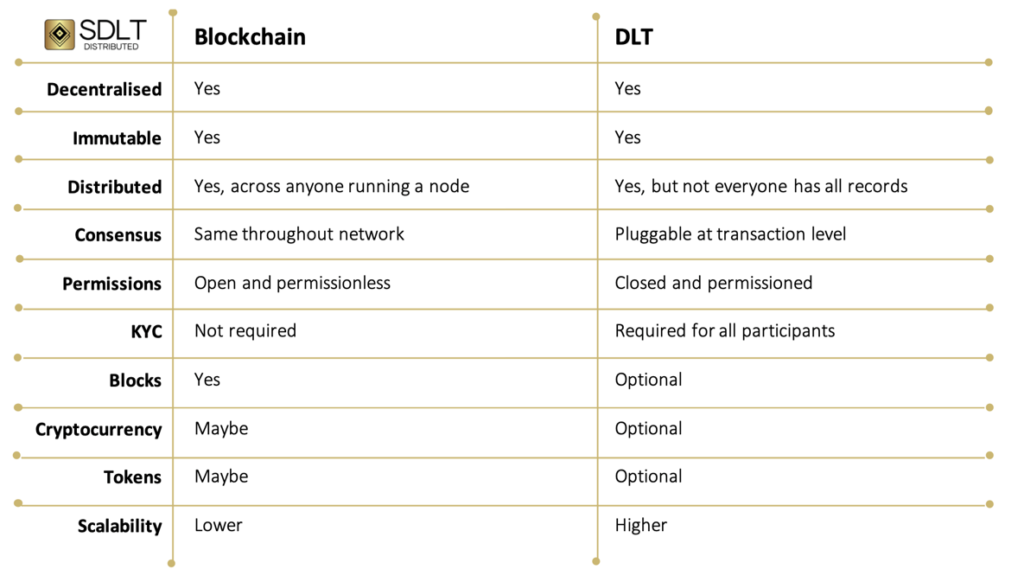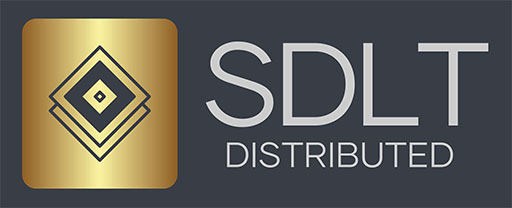
Blockchain versus Distributed Ledgers (DLT)
Blockchain is merely one specific type of distributed ledger technology (DLT). DLT is a decentralised database of records distributed among multiple participants or across locations, which requires node validation for making changes to the ledger. They are used for data exchanges such as transaction processing, validation, and authentication. All files receive a unique cryptographic signature and are timestamped once consensus is reached by participants on the network. The differentiating factors between blockchain versus DLT are frequently overlooked.
Blockchain versus DLT
A common misconception is that blockchain and distributed ledger technology are one and the same. The former (blockchain) is actually a type of the latter (DLT) which, because of its popularity, has become ingrained in people’s minds as what the product is. Think of blockchain and distributed ledger in the same way one might think of Post-it and sticky notes. In the same way not all sticky notes are Post-it, not all DLTs are blockchains – but all blockchains are DLTs.
The transactional architecture of blockchain bundles validated transactions into a sequential chain of time-stamped, cryptographically hashed blocks that are globally available to all parties on the network. By contrast, transactions on a standard DLT ledger are only available to included parties and data does not need to be structured in blocks or require a sequential chain. DLTs may also simply be a distributed system of record (SoR), without facilitating financial exchanges through a form of cryptocurrency as is common with a blockchain. The similarities and differences of blockchain versus DLT are summarised in the table below.

From wealth management to wealth manufacturing | The Asset
Greenhouse Gases Ledger for emissions management
Human-induced carbon dioxide fuels global warming Greenhouse gases (GHG) are an essential part of Earth’s atmospheric makeup. These…
Blockchain brings seed-to-sale transparency to cannabis
Blockchain and cannabis are two highly disruptive trends that are fundamentally shifting how business is conducted across the…


